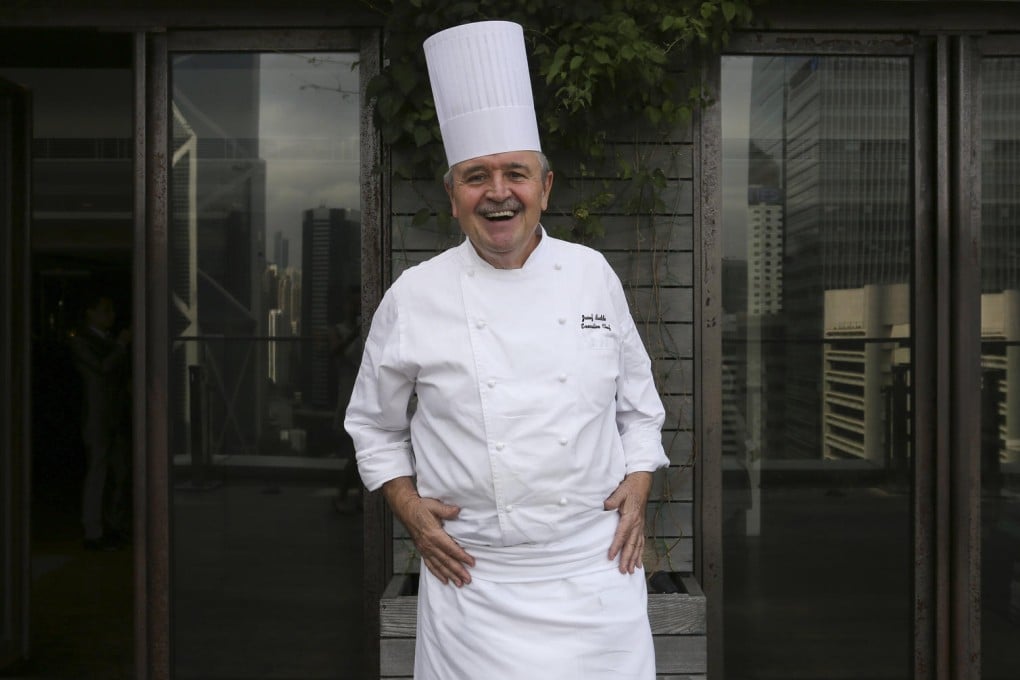Back in Hong Kong, Josef Budde, ex-Grand Hyatt executive chef, knows what he's missed
Energy and efficiency and the variety of food remind returning chef of his 14 years spent in the city. He tells Bernice Chan about getting started in Paris, his favourite places to eat and an embarrassing watermelon moment.

"After 30 years [of working for Grand Hyatt] it felt good to leave corporate America and live a more quiet life. I grew up in the mountains in a village called Menden, in Germany, where the winters were harsh, so my dream was to live on an island. I now live in Guam with my wife and it's only 4½ hours from Hong Kong. It's not sexy like Hawaii, but it's comfortable. I fish every day, wearing a T-shirt, shorts and flip-flops, and I'm content."
"The energy hit me as soon as I landed. Being able to go through immigration with a thumb-print scan is so amazing. The variety of food here is - my God! Before, having white truffles was such a big deal. Now everywhere you see white truffle promotions.
"I used to be involved with charities. I volunteered for Little Sisters of the Poor, where they picked up food from the hotel every day. I was also involved with the Duchess of Kent Children's Hospital and Heep Hong Society."

"It's a cliché, but from my mother. She was from the French part of Alsace and my father was a German soldier stationed there during the second world war. They fell in love and he brought her back to his village. She must have been frustrated because she didn't speak the dialect and wasn't easily accepted into the community. But she started baking and cooking dishes she learned from her mother, like kugelhopf [Alsatian brioche cake]. Many kids and neighbours wanted to come to our house and have cookies and cakes. My mother was happy to tell them stories about the food. I was impressed she made herself welcome. I assisted her in making these cakes and cookies, and soon she was taking orders for birthday cakes and special occasions."
SEE ALSO: Making a clean breast of it
"My mother subscribed to something like Home & Garden. She showed me pages in the magazine of restaurants in Paris. She said chefs there had a good life and they always had food to eat. She gave me 90 [German] marks and I used some to buy a train ticket. I arrived at the Gare du Nord train station in Paris, and I was scared, a country boy. I couldn't speak French. In those days chefs were like gods. One took mercy on me, giving me a job as a trainee at Maxim's and I was lucky because it wasn't good being German after the war. I had to work in the basement; they dropped all the food down there and I had to catch the fish and oyster trays. I developed a skill in opening oysters and cleaning fish. After three months I spoke just enough French to be in the kitchen."